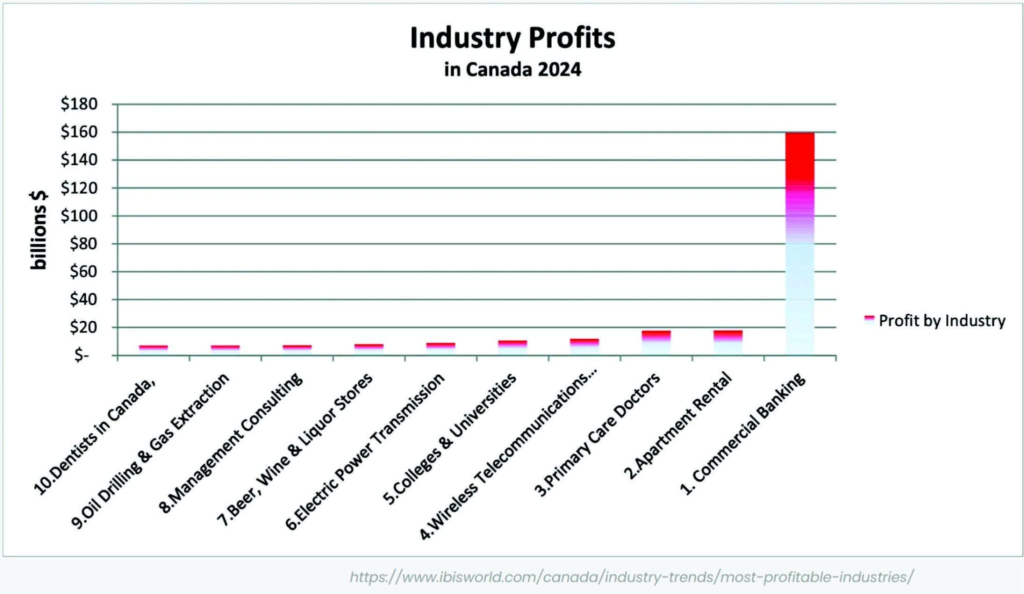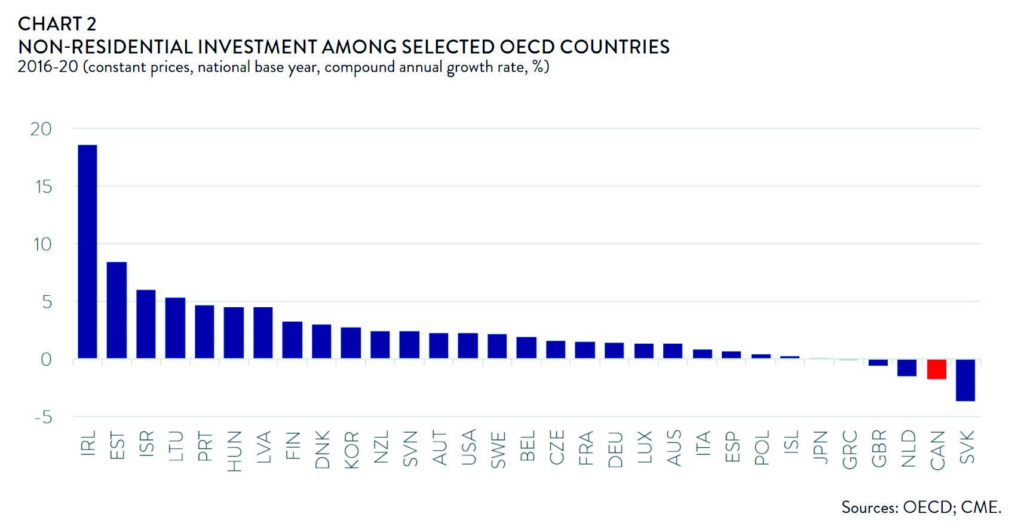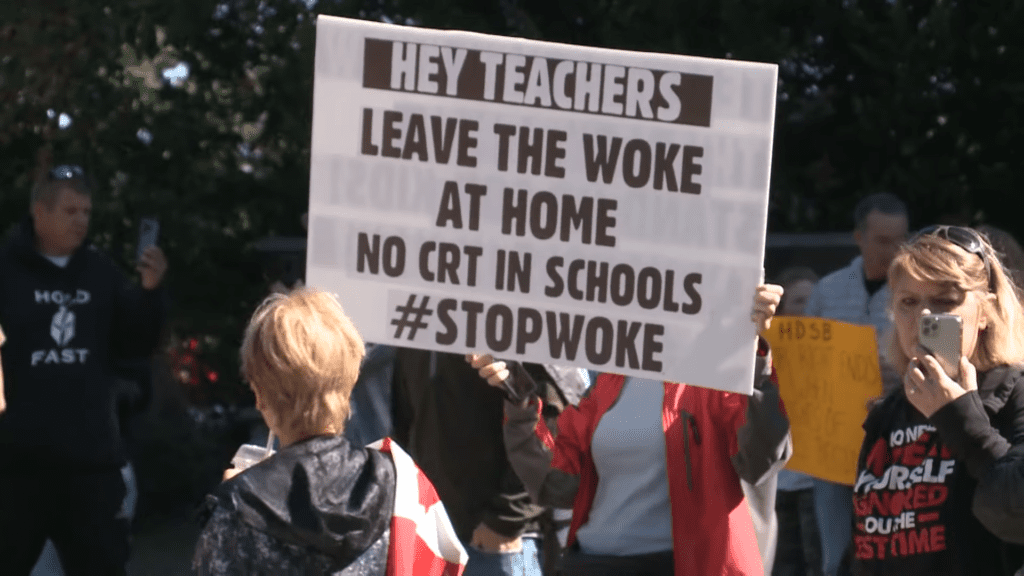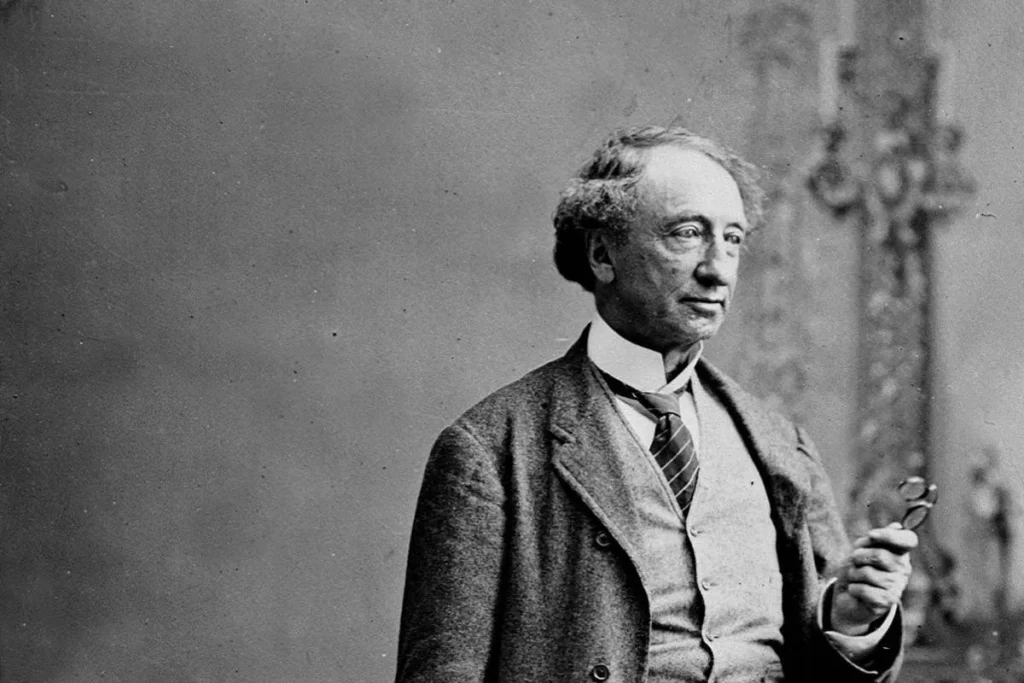Editor’s note: This article was originally published on the Canadians for a Sustainable Society website (sustainablesociety.com). It is republished here with permission of the author. This version is slightly edited – read the full version here.
Rare is the commercial economist who supports tariffs. These fly in the face of the cashflow/endless growth model which most economists have built up as the globalized future. Canada has been one of their brightest students (or dogmatic followers) with mass immigration driving rapid GDP growth and causing debt to ooze from every pore of the country’s social structure.
Canadians and Americans, as well as most of the rest of the West, have fallen into the same trap of pursuing consumption growth rather than well-being and income of their citizens. Our elites maximized top line GDP numbers rather than building a broad based, technologically sophisticated economy which would deliver high per capita incomes and high levels of economic and social resiliency.
The growth economy, mostly driven by mass immigration, debt and inflated asset valuations, did indeed produce tremendous cash flow but the toll it took on people, communities, infrastructure and budgets could not be hidden forever. We have built a house-of-cards economy and the wind is starting to blow.
Trump and other populist movements are the inevitable result. And so are the efforts to reverse decades of decline with tariffs and other initiatives, once deemed unspeakable in business-as-usual society.
Tariffs are the only mechanism that will allow Canada, the US and other western nations to climb out of the manufacturing hole globalism has dug them into. Tariffs reduce the massive price distortions of rigged exchange rates and environmental and labour standards disparities. They offer clarity and structure that will encourage investment and get the workforce and our productive methods back up to speed.
Canada is without a populist element in its mainstream conversation and is thus totally unprepared to either comprehend or deal with the dramatic measures enacted by our largest trading partner.
What we have here is a failure to process
Consequently, shocked Canadian politicians, instead of running to jump on the tariff train, are waking up and threatening retaliation. But issuing threats to avoid having to implement any kind of policy change will not save the business model of mindless growth.
While the growth-first-and-only policy has produced immense profits for banks and developers, it has been a disaster for Canadians and the land. Instead of fist shaking, why don’t we take a second and actually look at what we are defending.


Construction, asset inflation, money printing, cheap labour and debt do not make for a stable base of a progressive society. Manufacturing isn’t even on the list while money printing is #1 and almost 10 times more profitable than all of the other top 9 sectors combined. This is exactly the opposite of the rankings a healthy economy would post.
The US, has had a similar structure, but not as extreme due to much lower immigration rates than Canada. Still, there has been an immense transfer of wealth ($50 trillion US over 30 years according to Bernie Sanders) from productive people to unproductive people via machinations of asset inflation, debt, outsourcing and exchange rates. In Canada, this would scale to the $5 trillion to $7 trillion range or about $4,000 per person per year.
Can’t afford a house? That’s why.
In both countries, manufacturing has shrunk from roughly 30% of the economy in the 1960s to under 10% now.
But this business model of investing in building houses, shopping malls and roads (effectively overhead) in place of training and productive capacity is now running into the dual threats of tariffs from our #1 trading partner and the increasing technological superiority of a once humble supplier of cheap goods.
Begging the tide to recede
Now, let’s look at what we are fighting against. Trump often says that “America will be a manufacturing nation once again”. China has the economic structure Trump wishes America had and, in fact, once did have. He is emulating the Chinese business model which is investing in productivity boosting industrial capability and energy capacity (which will inevitably include renewables).
Do Canadian politicians actually believe this is a bad thing? Or that all governments don’t have the right as well as the obligation to pursue the best interests of their citizens?

That is the strategy that will deliver economic, energy and social resilience. The repatriation of manufacturing and its attendant research capability is a trend that will gain momentum as countries seek to regain their footing in an increasingly unstable world. Rebuilding industrial capability can help staunch now dangerous equality declines.
Canada’s trade negotiation options are limited as we have few tools with which to manage our future. We can retaliate by cutting off resource exports, restricting US imports and by staging a hearts and minds campaign. Our politicians can appear on US talk shows displaying their best pitiable beagle eyes to evoke maximum sympathy while offering no vision or goals.
“Give us a break, I mean we are Canadian after all!” holds little for an American nationalist trying to fix a country up to its neck in debt, working poor, and homelessness.
“Tariffs are the greatest thing in the world”
Tariffs don’t dictate all goods be made domestically, they mean that manufacturers are able to compete across a wider range of goods. This infrastructure of expertise expands capability and allows workers to fulfill their highest potential both personally and in terms of income. It builds a much broader knowledge base and assures higher resilience for any black swan event we may encounter. And these are emerging along the horizon, spun up by climate change, resource depletion and monetary instability.
The challenges we face won’t be overcome by a nation of baristas, speculators and money printers no matter how many of them there may be.
Rebuilding the country’s productive base and focusing on productivity and well-being is the only path to a progressive society. Just because Trump is headed in this direction, doesn’t mean we have to fight it. If we want to avoid being crushed by Trump’s egocentric dealing though, we need to go one better and get tariffs right. Right, that is, for everyone. Genuine progress lifts all boats while trade wars litter the landscape with a chaotic mix of winners and losers.
Retaliation is not a progressive strategy
Canada is in the impossible position of countering an American policy which is grounded on the bedrock of re-establishing manufacturing resilience to provide a long list of social and economic benefits. In contrast, Canada has no overarching strategy and its reaction to US initiatives is untethered to any foundation of social or economic objectives.
Canada has been ridden into the ground and has never made the connections between globalization, mass immigration, low productivity, low wages and fiscal decline. But those impacts, like abandoned babies, so emphatically denied until now, are about to begin stacking up on the front porch.
There are scores of studies from many different countries, including Canada, going back to the 1970s showing population growth hurts per capita income. The corporate media chose not to cover them. Here is an article from one writer who fulfilled his journalistic duty: Parliamentary Budget Officer: Cutting Immigration Raises GDP Per Capita by Riley Donovan.
Tariffs need to be cooperative and not simply used as a club
A strategy of boosting job quality, productivity and wages is fundamental to social welfare and fiscal balance. These should be the talking points in any negotiations with Trump because this is what he ran on and appears to be what he is trying to deliver.
Canadian governments are now eyeball to eyeball with a government which is laser focused on citizen well-being and social resilience. A rational short-term response of knee-jerk threats just fans more smoke into the room. Instead, we need to have the same goals in place and offer to help make tariffs work for everyone.
The point? Tariffs can work but only if they work for everyone. We have to pivot from “no tariffs” to “workable tariffs”.
If you want to read more about cooperative development, check out Globalism vs Cooperative Development.
Re-enacting the past hasn’t worked
As a path forward, the colonial era economic model of population growth and resource exploitation is dead on arrival. The difference between the last 4 decades and 200 years ago is that we have not been serving the Motherland by supplying resources and importing finished goods. Rather, the Empire now being served is the cabal of banks, developers and speculators who profit immensely from rapacious growth and the transfer of wealth from the productive 95% to the counter-productive 5%.
Collectively, over the past five decades, our media and politicians have staked Canadians on an anthill of financial predators all the while announcing bold new photo-op measures to alleviate their pain. After decades of damaging growth-uber-alles policy, the last 10 years took failure to a new level with the incomprehensible incompetence of the Trudeau government and the salacious corruption of developer directed provincial and local governments.
House of cards meets new reality
Outside of Trump, large movements are now taking place in global commerce as BRIC nations (40% of the world population) try to move away from the obvious flaws of the current globalism model. Their initiative is partially explained by the desire to shake off the dominance of American power but it is also a recognition that there are critical flaws and weaknesses in the global trade system. Not the least of these is the dependence on the US dollar.
If the US does not lead with progressive tariff policies, the de-facto leadership of globalization reform will pass to the BRIC nations. Denying these issues hands the initiative entirely to countries we are not now closely aligned with.
Business-as-usual is over, and Canadian politicians will have to decide if they want to walk or be dragged into a new future. Severe damage could come in the form of tariffs, climate impacts, depletion issues, or death by a thousand cuts of ageing – but whichever combination it is, Canada is not ready for it.
Growth has clearly not been beneficial to Canadians for decades, yet our tariff reactions to date resemble fighting to keep one’s head in the mouth of an increasingly restive lion.
It is tough to do any worse than we have in failing to invest in Canadians but, egged on by finance controlled media, our politicians seem to have a magical ability to surprise on the downside. We need a vision change.
A leader once again
Canada will never be a world leader in power but can once again join the ranks of progressive world leaders. To do this we need to:
- Recognize the legitimacy of tariffs and the objectives they are designed to achieve. This will establish the basis for communication that tariff denial currently makes impossible.
- Implement tariffs for nations at a similar level of development – 25%. Start at 15% and add 5% annually.
- Implement tariffs for nations with much lower labour and environmental standards – 60%. Start at 20% and add 10% annually.
To become a leader, we must first recognize we have been losing. Bigger has not been better. And its pursuit will produce far worse results going forward.
Art of the deal VS the necessity of strategy
It may be too early to tell, but Trump’s strategy for assuring a strong and resilient America does not appear to include establishing a strong and resilient community of nations. Canada needs to lead by example and convince him that the fewer international problems there are, the fewer will wash up on American shores.
As long as Trump makes sudden America-first deals as opposed to working out a collective strategy for broad international adoption, tariffs will be piecemeal and retaliatory. A chaotic market environment will make it impossible for business to make long term plans and invest accordingly. This negates a great deal of the social and economic progress tariff regimes have the potential to deliver.
Canada needs to steer tariff agreements toward cooperative development, and this means working with other countries. We need to embrace the concept of a broad-based economy and progress for all.
Whatever we have to do to either join the tariff train or minimize their downsides, we have to change the picture below by investing in Canadians and building a more capable, broader-based and more resilient country.

A new world – will it be one of order or disorder?
Trump’s goal is to replace the consumer society with the producer society. This is laudable. In a world where ageing nations are entering the unfriendly realm of climate change and resource depletion, only broad-based economies have a chance of maintaining social stability while retaining the possibility of ongoing progress.
This is now a world of tariffs and Canada is going to have to adopt clear goals and a strategy with which to achieve them. This is new territory. Complaining and threatening won’t make current issues disappear. We, along with like-minded countries, will have to find a way to make trade modernization into a beneficial tool rather than suffering it as one of subjugation.
Trump is a disruptor. The logjam is moving. Tariffs are here. We need to make them work.
All content on this website is copyrighted, and cannot be republished or reproduced without permission.
Share this article!




The truth does not fear investigation.
You can help support Dominion Review!
Dominion Review is entirely funded by readers. I am proud to publish hard-hitting columns and in-depth journalism with no paywall, no government grants, and no deference to political correctness and prevailing orthodoxies. If you appreciate this publication and want to help it grow and provide novel and dissenting perspectives to more Canadians, consider subscribing on Patreon for $5/month.
- Riley Donovan, editor